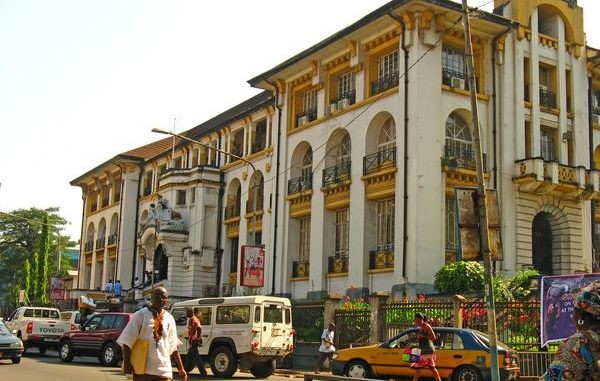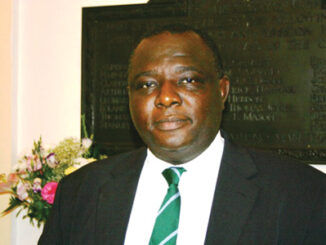
*An OpEd*
*By:Andrew Kamara-APC Sweden 🇸🇪 District Secretary General.*
*The Corrupt Judiciary System in Sierra Leone under PAOPA Bio regime.*
My Homeland Sierra Leone, a country located in West Africa, has long grappled with a range of socio-political and economic challenges. Among the most concerning issues is the pervasive corruption that has permeated various sectors of society, including the judiciary system. This writer aims to shed light on the corrupt practices plaguing Sierra Leone’s judiciary system, examining the detrimental consequences and proposing potential remedies to restore justice and promote the rule of law.
*Corruption in the Judiciary:*
The judiciary serves as fundamental pillar of the branches of government, expected to uphold principles of impartiality in ensuring fair adjudication of legal matters. Unfortunately, Sierra Leone’s judiciary has been marred by corruption, undermining its ability to dispense justice effectively. Instances of bribery, nepotism, and political interference “Orders from Above” have been reported, severely compromising the integrity and credibility of the judicial system.
*Bribery and Judicial Favoritism:*
Bribery is a systemic and endemic problem within Sierra Leone’s judiciary. Reports indicate that judges and court officials often solicit or accept bribes to influence the outcome of cases. This practice erodes public trust in the legal system, as justice is subverted in favor of the highest bidder. Furthermore, there are allegations of favoritism, where influential individuals or political figures within government’s of the day which receive preferential treatment in court proceedings, leading to unequal justice for ordinary citizens.
*Political Interference:*
Another significant challenge is political interference in the judiciary. The executive branch’s undue influence on the judiciary undermines its independence and impartiality. Political connections and affiliations often determine the outcome of cases, compromising the principle of equal protection under the law. This interference perpetuates a culture of impunity, where individuals in power can evade accountability, eroding public confidence in the judicial system.
*Consequences of a Corrupt Judiciary:*
The ramifications of a corrupt judiciary system are far-reaching and detrimental to society. Firstly, it perpetuates inequality, as the wealthy and well-connected can manipulate the system to their advantage, leaving the marginalized and vulnerable without access to justice. This fosters a culture of injustice and breeds discontent within the citizenry, exacerbating social tensions. Additionally, corruption within the judiciary hampers foreign investment, as businesses are reluctant to operate in an environment where the rule of law is compromised, hindering economic development and growth.
*Addressing the Issue:*
Resolving the issue of corruption within Sierra Leone’s judiciary requires a comprehensive and multi-faceted approach. The following measures can be instrumental in combating corruption and restoring public trust in the system:
*Strengthening Judicial Independence:*
There should be clear separation of powers between the judiciary, executive, and legislative branches of government to prevent political interference. Judges should be appointed based on merit, integrity, and legal expertise rather than political affiliations.
*Ensuring Transparency and Accountability:*
Implementing robust mechanisms to monitor the conduct of judges, court officials, and lawyers is crucial. Establishing an independent anti-corruption commission specific to the judiciary can help investigate and prosecute cases of corruption effectively.
*Judicial Training and Education:* Regular training programs should be conducted to enhance the professionalism, ethics, and legal knowledge of judges and court personnel. This can help promote a culture of integrity and impartiality within the judiciary.
*Public Awareness and Engagement:*
Educating the public about their rights, legal processes, and avenues for seeking redress can empower citizens to demand accountability. Civil society organizations, media, and community outreach initiatives can play a vital role in disseminating information and fostering public dialogue.
Finally,
The existence of a corrupt judiciary system in Sierra Leone poses significant challenges to the rule of law and social cohesion. Eradicating corruption requires a concerted effort from all stakeholders, including the government, judiciary, civil society, and the citizens themselves. By implementing reforms that enhance transparency, accountability, and independence, Sierra Leone can work towards restoring the integrity and transparency within the JUDICIARY arm of government.
I remain,
The undisputed patriot-Comrade Andrew Kamara.



